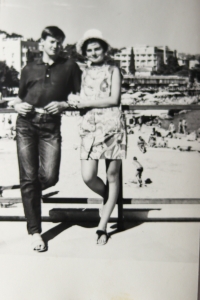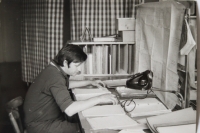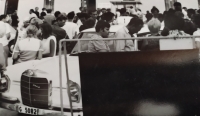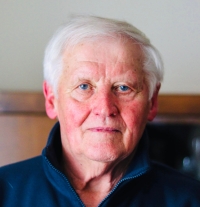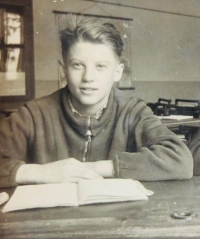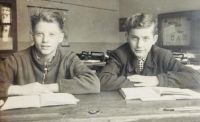Return to the occupied homeland or emigrate?

Download image
Jiří Hradecky was born on March 27, 1944 in Příbram in Moravia. The father was an electrician and the mother was a housewife. He had an older and a younger brother. The whole family lived on the farm of the maternal grandfather. They had a farm, two cows and domestic animals. Jiří Hradecký’s grandfather did not live to be collectivized and the family did not want to continue farming, so they got rid of the cattle after his death. They were not affected by the confiscation of property. In the 1950s, in the first grade of elementary school, Jiří was a member of the Pionýr, but at the same time he also went to church. After completing basic schooling, he went on to apprentice at the Královopolské strojíreny as a locksmith specializing in welding. He graduated from vocational school while employed. In August 1968, he and his fiancee Lída went on holiday to Poreč in the former Yugoslavia, where they were caught up in the news of the occupation of the homeland. He participated in an impromptu protest on the local pier. They considered emigrating, but ultimately decided to return to Czechoslovakia. In 1982, the witness went to the Soviet Union for a year on business. In the years 1985–2002, he was employed at the Dukovany Nuclear Power Plant. In the period 2002–2010, he held the position of mayor of his native village of Příbram in Moravia. In 2022 he lived in Příbram in Moravia.
